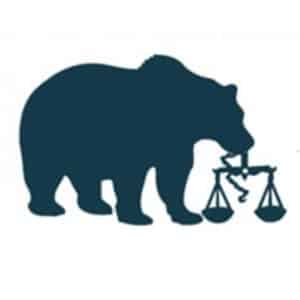|
Listen to this Article
|
As an employee you strive to get to work at your scheduled time and give an honest day’s work for an honest day’s pay. You follow all of the policies in your employee manual, and you have no blemishes in your employee record. Your employer expects it of you and most play by the same set of rules.
But some don’t, and that is why federal and state laws have been passed protecting the civil and labor rights of workers, with governmental agencies set up to ensure employers adhere to those laws.
The laws and what they mean to you
The largest employers and contracting companies often fail to comply with the U.S. Department of Labor (DOL). The language used in the National Labor Relations Act (NLRA) is complicated. Even labor specialists find it difficult to communicate the rules.
The NLRB (National Labor Relations Board) is a relatively unknown entity within the United States government. The NLRB is responsible for overseeing and interpreting matters pertaining to the NLRA, which was originally enacted into law in 1942 to ensure that there was not an interruption of commerce. Since then, the board oversees matters pertaining to union elections and disputes between labor organizations, employers and employees. The board is also charged with the responsibility of investigating charges, work with opposing parties to settle their disputes and make decisions on cases brought before the board and ensure the enforcement of orders.
Union membership doesn’t always make a difference
Many employers discount the NLRB because they don’t fall under its provisions. However, if you are classified as an employee, you do. As an employee you can file unfair labor practice charges (ULP’s) against your employer whether the company has been organized by a union or not. By the same token, employees can also file charges against unions on the grounds of failure to represent. It should also be noted that alleged charges don’t have to be proven by the person making the charge, and every charge is fully investigated by the board.
Most people identify the United States Department of Labor as the entity most associated with pay. Beyond overseeing wage and hour laws, other responsibilities of the DOL include but are not limited to:
- Ensuring a safe environment for workers
- Ensuring work environments are free of hostility
- Ensuring that workers are not intimidated or retaliated against
- Dealing with issues pertaining to worker’s compensation
The Fair Pay and Safe Workplaces executive order, signed by President Obama in July 2014 requires any potential federal contractor to disclose any violations of labor law. It affords governmental agencies guidance relating to awarding federal contracts. The executive order’s main goals are to save money by increasing cost savings and efficiency. This is often accomplished by ensuring workplace safety.
Thomas E. Perez, U.S. Secretary of Labor stated, “Federal contracts should deliver value for taxpayers in a way that is consistent with our nations values.”
He went on to say, “Contractors who illegally cut corners at the expense of their workers civil rights should not benefit from taxpayer-funded federal contracts. At the same time, employers who meet their legal responsibilities should not have to compete with those who do not. The regulations and guidance we are announcing today seek to ensure a level playing field for contractors and workers alike.”
Whistleblower laws
With the new guidelines in place, unions and the agencies charged with protecting the rights of workers will gain greater insight into the companies they are working with. This will also give those agencies and labor organizations an opportunity to educate workers on what the 14 basic workplace protections are.
Workers who see and report violations of the executive order may have the right to file a whistleblower claim if their company works under one or more federal contracts. The executive order will give agencies a better snapshot of bidding contractors history because they will now be required to divulge any citations of the basic workplace protections dating back three years.
Talk to an experienced California workplace civil rights attorney
If you find yourself in a situation where you feel that your rights have been violated, or you have been retaliated against for reporting a violation or an incident, you should contact an experienced workers civil rights attorney. An attorney who specializes in this area of law will evaluate your case to determine not only the extent of your damages, but the level of retaliation you have sustained and whether or not you are a victim of a covert deal made between a labor organization and your employer.
Your attorney would also be able to guide and direct you if you choose to file complaints with agencies beyond the DOL or NLRB like the EEOC (Equal Employee Opportunity Commission) for example.


